About Us
History of Sustainable Development Goals (SDGs)
The 2030 Agenda: A Global Plan for a Sustainable Future
In 2015, all UN member states adopted the 2030 Agenda for Sustainable Development. This plan outlines 17 Sustainable Development Goals (SDGs) as a blueprint for a better future for both people and the planet. These goals call for urgent action from all countries, rich and developing, to address global challenges together.
Building on Decades of Progress
The SDGs are not a new initiative. They build on decades of work by countries and the UN, including previous efforts like Agenda 21 (adopted at the 1992 Earth Summit) and the Millennium Development Goals (MDGs). These earlier initiatives laid the groundwork for the more comprehensive and ambitious SDGs.
Key Milestones in the SDG Journey:
1992: Agenda 21, a comprehensive plan for sustainable development, is adopted at the Earth Summit in Rio de Janeiro.
2000: The Millennium Declaration establishes eight Millennium Development Goals (MDGs) focused on tackling extreme poverty by 2015.
2002: The Johannesburg Declaration reaffirms commitments to poverty eradication and environmental protection, building on Agenda 21 and the MDGs.
2012: The Rio+20 conference launches a process to develop new SDGs after the MDGs expire in 2015.
2015: The 2030 Agenda for Sustainable Development with its 17 SDGs is adopted at the UN Sustainable Development Summit.
Implementation and Support
The UN plays a crucial role in supporting the implementation of the SDGs. The Division for Sustainable Development Goals (DSDG) within the UN provides resources and expertise to countries and stakeholders working towards achieving these goals.
Moving Forward: A Global Commitment
The success of the 2030 Agenda hinges on broad ownership and commitment from all stakeholders. DSDG aims to facilitate this engagement and ensure that the SDGs translate into a reality, creating a more sustainable and prosperous future for all.
SDGs and Pakistan
Prioritizing SDGs for a Brighter Future:
Recognizing the transformative potential of the SDGs, Pakistan has placed them at the heart of its national development strategy. This prioritization aims to propel the country towards joining the ranks of upper middle-income nations by 2030.
Leading the Charge on SDGs:
Pakistan stands out as the first nation to formally adopt the 2030 Agenda for Sustainable Development through a unanimous parliamentary resolution. This pioneering move underscores their unwavering commitment to achieving the SDGs.
SDGs:
A Pathway to Progress: Pakistan views the SDGs as a critical roadmap for achieving significant economic growth and development. By prioritizing these goals, they aim to transition into the category of upper middle-income countries by the year 2030.


History of Sustainable Development Goals (SDGs)
The 2030 Agenda: A Global Plan for a Sustainable Future
In 2015, all UN member states adopted the 2030 Agenda for Sustainable Development. This plan outlines 17 Sustainable Development Goals (SDGs) as a blueprint for a better future for both people and the planet. These goals call for urgent action from all countries, rich and developing, to address global challenges together.
Building on Decades of Progress
The SDGs are not a new initiative. They build on decades of work by countries and the UN, including previous efforts like Agenda 21 (adopted at the 1992 Earth Summit) and the Millennium Development Goals (MDGs). These earlier initiatives laid the groundwork for the more comprehensive and ambitious SDGs.
Key Milestones in the SDG Journey:
1992: Agenda 21, a comprehensive plan for sustainable development, is adopted at the Earth Summit in Rio de Janeiro.
2000: The Millennium Declaration establishes eight Millennium Development Goals (MDGs) focused on tackling extreme poverty by 2015.
2002: The Johannesburg Declaration reaffirms commitments to poverty eradication and environmental protection, building on Agenda 21 and the MDGs.
2012: The Rio+20 conference launches a process to develop new SDGs after the MDGs expire in 2015.
2015: The 2030 Agenda for Sustainable Development with its 17 SDGs is adopted at the UN Sustainable Development Summit.
Implementation and Support
The UN plays a crucial role in supporting the implementation of the SDGs. The Division for Sustainable Development Goals (DSDG) within the UN provides resources and expertise to countries and stakeholders working towards achieving these goals.
Moving Forward: A Global Commitment
The success of the 2030 Agenda hinges on broad ownership and commitment from all stakeholders. DSDG aims to facilitate this engagement and ensure that the SDGs translate into a reality, creating a more sustainable and prosperous future for all.


Join 1000s of Students
Vivamus id gravida mi, nec ullamcorper purus. Suspendisse ut nibh sagittis lacus viverra aliquam. Praesent ac lobortis mauris, non imperdiet quam. Praesent laoreet elit nisi, id feugiat ante accumsan sed. Vestibulum ante ipsum primis in faucibus orci luctus et ultrices posuere cubilia curae.
Students
Countries
%
Programs
We offer a wide variety of courses and certificates in a fraction of the time.

Lorem ipsum dolor sit amet
Quisque aliquet velit sit amet sem interdum faucibus. In feugiat aliquet mollis etiam tincidunt ligula. Lorem ipsum dolor sit amet, consectetur adipiscing elit. Donec sed finibus nisi, sed dictum eros.
Donec sed finibus nisi
Luctus lectus non quisque turpis bibendum posuere. Morbi tortor nibh, fringilla sed pretium sit amet. In non pulvinar purus. Curabitur nisi odio, blandit et elit at, suscipit pharetra efficitur elit.
Morbi tortor nibh fringilla
Ac feugiat ante. Donec ultricies lobortis eros, nec auctor nisl semper ultricies. Aliquam sodales nulla dolor. Quis blandit erat. Donec laoreet libero non metus volutpat consequat in vel metus. Sed non augue id felis pellentesque.

Divi University
Vestibulum ante ipsum primis in faucibus orci luctus et ultrices posuere cubilia Curae; Donec velit neque, auctor sit amet.
